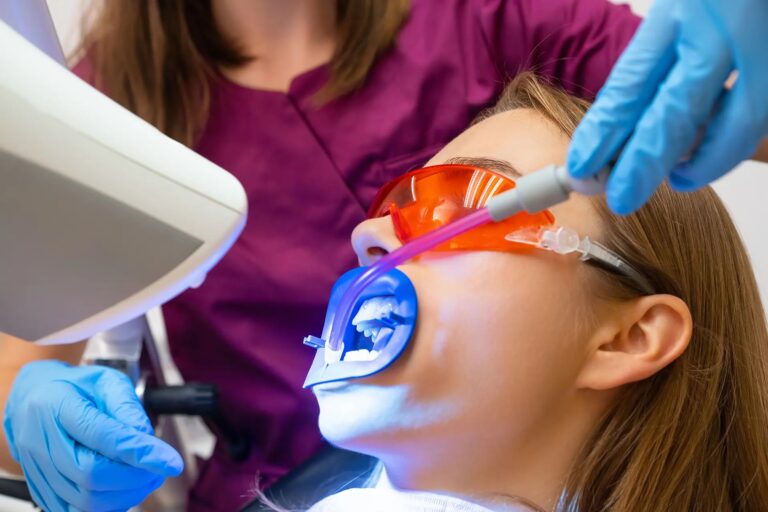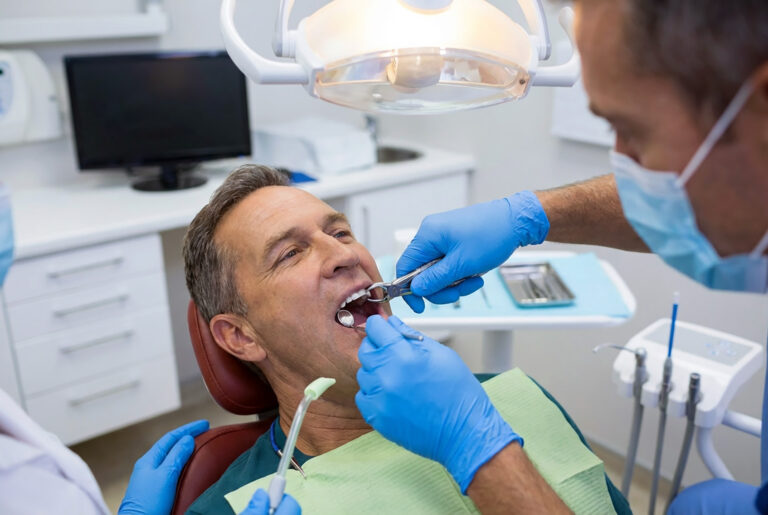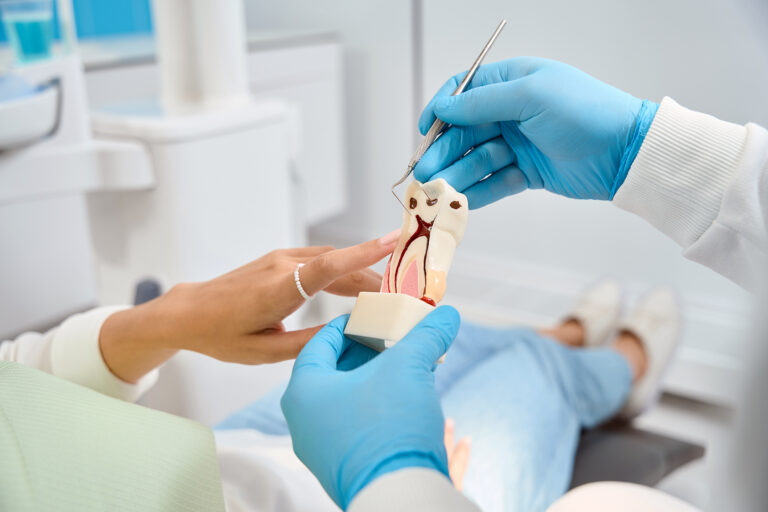Extraction is the best option when a tooth can’t be saved through restorative treatments, whether it’s a damaged, decayed, or an impacted molar. Molar tooth extractions are one of the most common dental procedures worldwide. The idea of having a molar removed can be daunting, but understanding the process and what to expect can soothe your anxiety and ensure a smooth recovery.
What Is a Tooth Extraction?
Tooth extraction is a common dental procedure in which a tooth is removed from its socket in the jawbone. This is often necessary to relieve dental pain, prevent the spread of infection, or improve overall oral health. Occasionally, teeth are extracted for orthodontic purposes. Tooth extractions can be done on any tooth, including molars and wisdom teeth, and are usually done under local anesthesia to minimise discomfort to the patient.
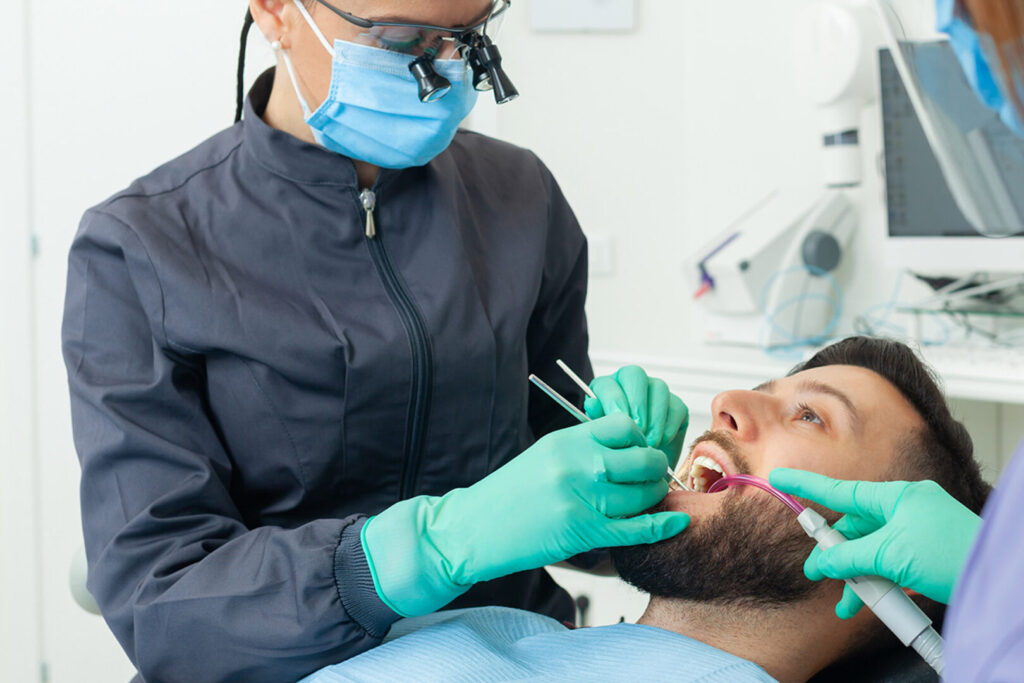
Types of Tooth Extractions
There are two types of tooth extractions: simple and surgical. A simple extraction is a straightforward procedure in which the dentist removes a visible tooth that is easily accessible in the mouth. This type of extraction is quick and involves minimal discomfort. A surgical extraction is a more complex procedure and is necessary for teeth that are impacted, partially erupted, or broken off at the gum line. This may involve making an incision in the gum tissue and possibly removing some bone to access the tooth. Both types of extractions are done with the utmost care to ensure patient comfort and successful tooth removal.
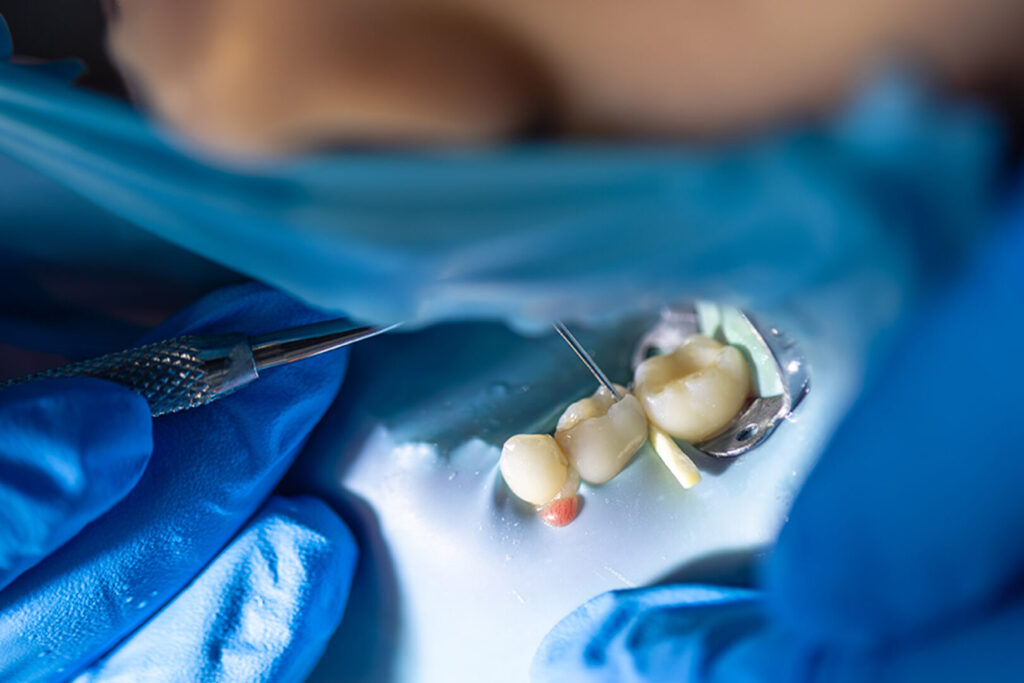
When is a Wisdom Tooth Extraction Necessary?
A molar tooth may need to be extracted for several reasons. Severe tooth decay that extends deep into the tooth and affects the pulp can lead to infection; extraction is often the best option if a root canal is not possible. Gum disease can also weaken the bone supporting the molar, leading to tooth mobility that may necessitate extraction.
Sometimes, multiple teeth may need to be extracted due to severe dental issues or orthodontic needs, which may require general anaesthesia and special aftercare instructions. Impacted wisdom teeth that don’t have enough room to come out properly cause pain, swelling, and infection, making extraction necessary. In orthodontic cases, the extraction of premolar teeth is sometimes recommended to create space for proper tooth alignment. In cases of trauma or fractures, a molar that is too damaged to be repaired may also need to be extracted.

Pre-Extraction Assessment
Before the tooth extraction, your dentist will conduct a thorough pre-treatment evaluation to assess the condition of the tooth and the surrounding gums. This evaluation includes a visual examination of the tooth and gums, as well as X-rays to assess bone levels and determine the extent of the damage. Your dentist will also review your medical history to identify any potential risks or complications that may arise during the procedure.
During this evaluation, your dentist will discuss the treatment and sedation options available to ensure your comfort during the procedure. They will also explain the risks and benefits of the tooth extraction and alternative treatments that may be suitable for your situation. This thorough assessment is important to ensure you are fully informed and prepared for the extraction, ensuring a smooth procedure.
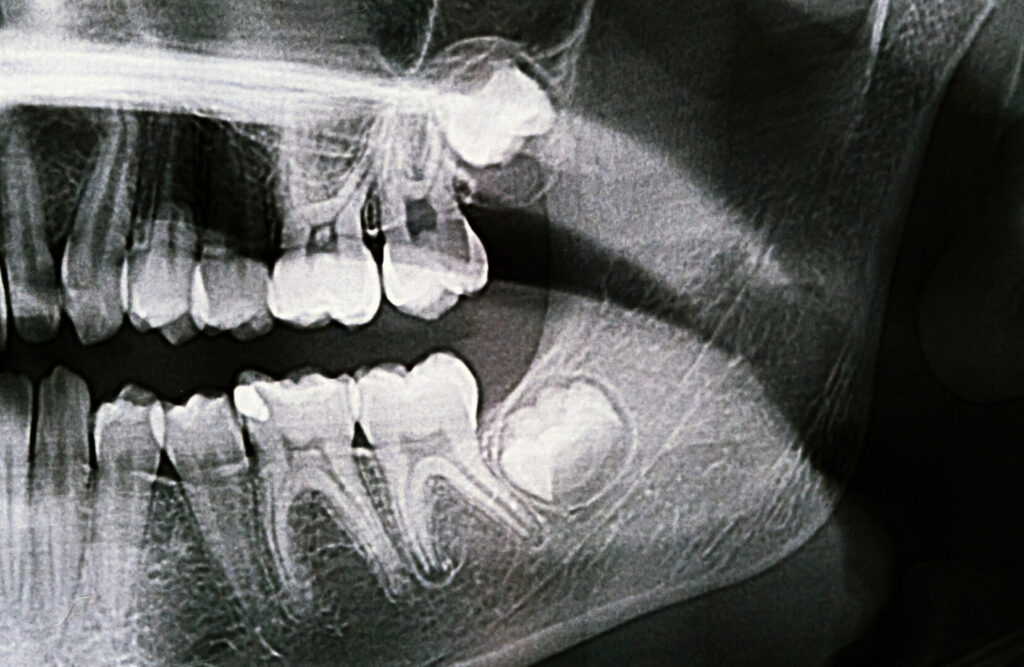
The Molar Tooth Extraction Procedure
The extraction process depends on whether the tooth is fully erupted or impacted. For a simple extraction where the tooth is visible above the gum line, the dentist numbs the area with local anaesthesia and uses specialised instruments to loosen and remove the tooth. The procedure is generally quick and minimally uncomfortable. Maintaining the blood clot that forms in the tooth socket after extraction is essential to facilitate healing and prevent complications, such as dry socket —a painful dental condition that sometimes occurs after a tooth is removed.
A surgical extraction is required for impacted or severely broken molars. The dentist or oral surgeon may need to make an incision in the gum and possibly remove some bone to extract the tooth safely. In some cases, the molar may be sectioned into smaller pieces for easier removal. Local anaesthesia is used, but sedation may also be an option for patients who have dental anxiety.
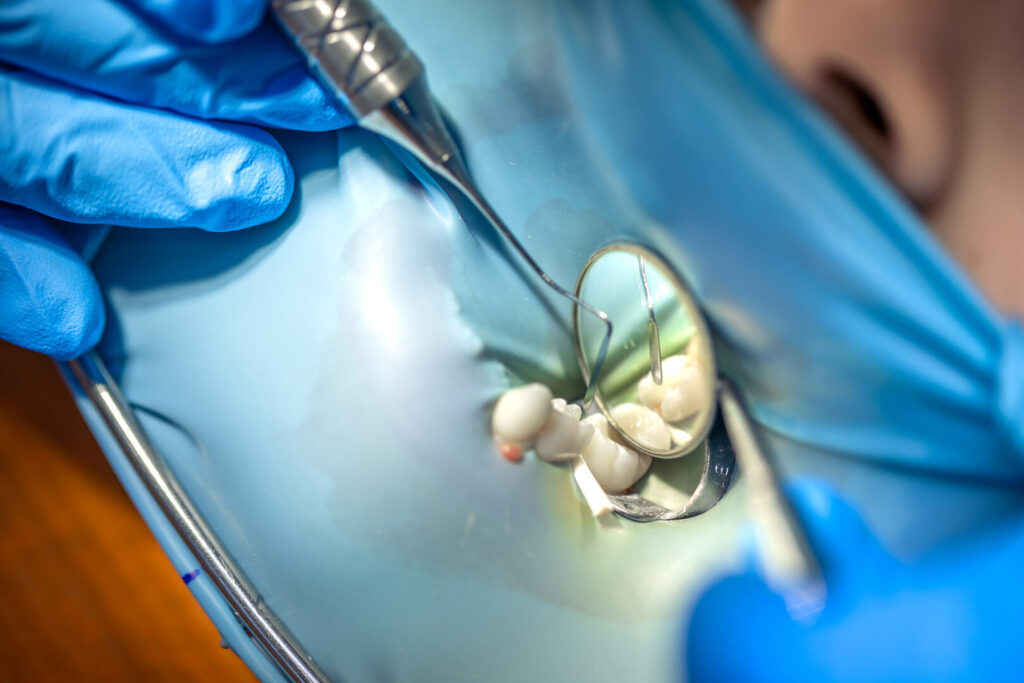
Molar Tooth Extraction Aftercare
Proper aftercare is important for a smooth recovery and to prevent complications like dry socket, infection, or prolonged bleeding. After the procedure, patients are advised to rest and avoid strenuous activities for at least 24 hours. Biting down on gauze helps control bleeding, while cold compresses can reduce swelling.
Pain and discomfort are common for the first few days. Over-the-counter or prescribed pain relief can help manage this. Eating soft foods, avoiding hot liquids, and refraining from using a straw can help prevent the dislodging of the blood clot that forms in the socket, which is essential for proper healing.
Good oral hygiene, such as gentle rinsing with warm salt water after 24 hours, can help keep the area clean while avoiding direct brushing near the extraction site.
Follow-up appointments are critical for proper healing, and any persistent pain, swelling, or signs of infection should be reported to your dentist immediately.

Molar Tooth Extraction Cost in Singapore
The price of molar tooth extraction in Singapore depends on the complexity of the procedure and the dental clinic. A simple extraction typically ranges from $150 to $350, while surgical extractions, especially for impacted molars, can cost between $872 and $1,526.
MediSave may help Singaporeans and Permanent Residents cover costs for surgical extractions, including wisdom teeth removal and dental implant procedures. Pre-molar tooth extraction may be necessary for orthodontic cases, with costs varying based on individual treatment needs. It’s best to consult your dentist for a detailed cost breakdown before treatment.
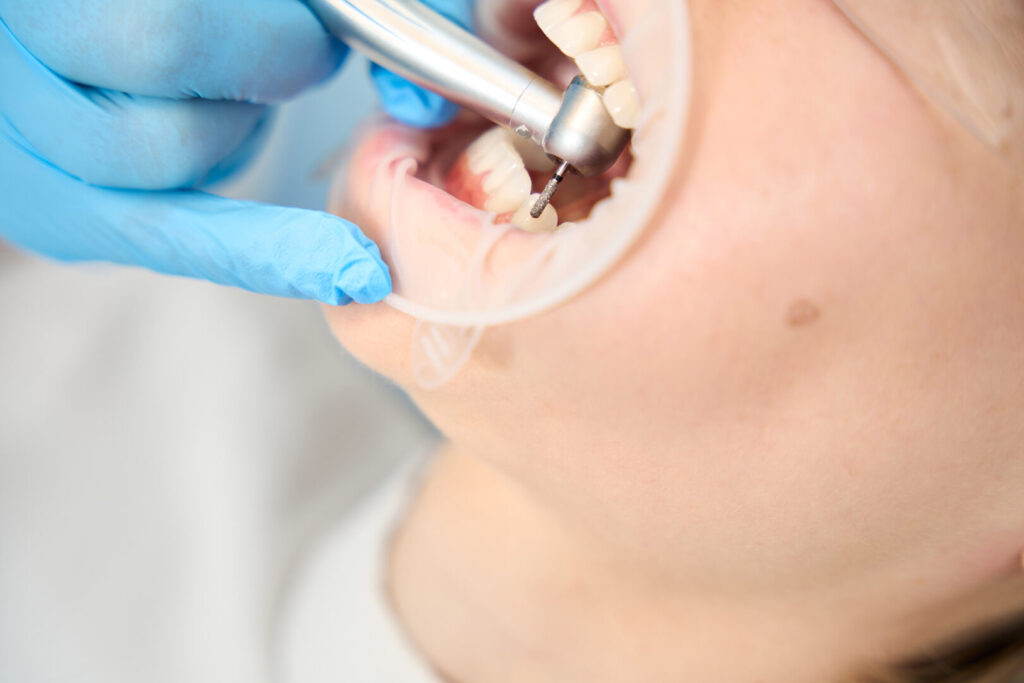
Why Choose TEETH @ Tiong Bahru for Your Molar Tooth Extraction?
At TEETH @ Tiong Bahru, we understand that undergoing a molar tooth extraction can be a scary experience. Our experienced dental team ensures every patient receives personalised care from consultation to post-extraction recovery. We aim to make your procedure as comfortable and stress-free as possible, utilising advanced techniques and a patient-focused approach. We also specialise in wisdom tooth extraction and provide comprehensive care and expertise to manage the complexities and risks at TEETH @ Tiong Bahru.
Contact us today to schedule your consultation and get expert dental care tailored to your needs.
RELATED TOOTH EXTRACTIONS


